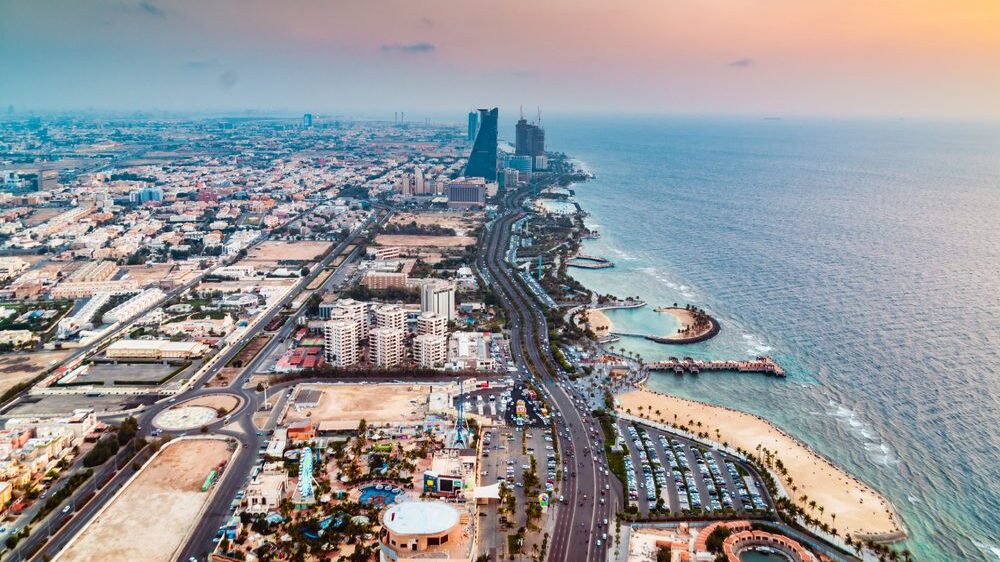
Jeddah, Saudi Arabia
Over the weekend, top representatives of 42 countries, including the U.S., China, and India convened—in person or remotely—in Jeddah, Saudi Arabia, to develop key principles which they hoped would serve as a starting point for bringing the war in Ukraine to a close.
#فيديو | اختتام أعمال اجتماع مستشاري الأمن الوطني وممثلي عدد من الدول والمنظمات الدولية المنعقد في جدة بشأن الأزمة الأوكرانية.#واس_عام pic.twitter.com/r9L3Gq2Z8L
— واس العام (@SPAregions) August 6, 2023
Importantly, while it would monitor the proceedings, Russia did not attend, casting doubt on the future viability of the initiative. In addition, Russian President Vladimir Putin recently said there could be no cease-fire while Ukrainian forces were “on the offensive.”
While Al Arabiya reports that the talks have not yielded an official statement, it was agreed that another round of talks would be held later in the year.
Citing the Saudi Press Agency, Al Arabiya reported that the “participants have agreed on continuing international consultations and exchanging views in a way that contributes to building common grounds that pave the way for peace,” as they also underscored “the importance of benefitting from the positive opinions and suggestions that were discussed during the meeting.”
In having positioned itself as a mediator, Saudi Arabia, the world’s top exporter of crude oil, can mend its somewhat strained relations with its allies, especially the U.S., in the wake of its pivot to the East as it sought closer ties with China in particular.
For its part, the West views Saudi Arabia’s mediation as an opportunity to, by proxy, make headway in influencing those nations, known as the Global South, which had either adopted a stance of neutrality towards the ongoing war in Ukraine, or one of open support for Russia.
A first such meeting was held in Copenhagen in late June. China, while having been invited, did not show up. This time, however, the country was represented by its head of Eurasian Affairs Li Hui.
“We have many disagreements and we have heard different positions, but it is important that our principles are shared,” Reuters reported Li saying before the meeting.
While the involvement of China, considering its close ties with Moscow, is viewed as a diplomatic coup by the West, it is safe to assume that China felt more at ease attending with Saudi Arabia as the host, precluding (too much) Western influence.
The foundation of last weekend’s talks was Ukraine’s 10-step peace plan, launched by Ukrainian President Volodymyr Zelensky last November. As a precondition for peace, it demands the withdrawal of Russian troops from Ukraine, guarantees of nuclear, food, and environmental security, as well as the release of prisoners of war and children transferred to Russia.
According to anonymous sources, it has been agreed that official working groups will be starting work on these issues. Ukrainian President Zelensky said earlier that he hoped the initiative would lead to a “peace summit” of world leaders this autumn to endorse the principles he laid out in his peace plan.
In a statement published on Sunday, August 6th, Andriy Yermak, head of Zelensky’s office, said all parties had “an extremely honest, open conversation, during which representatives of each country could voice their position and vision” Yermak continued,
There were different views, but all the participants demonstrated their countries’ commitment to the principles of the U.N. Charter, international law, and respect for the sovereignty and inviolability of the territorial integrity of states.
Zelensky’s demand for the full restoration of Ukraine’s territory constitutes a stumbling block, however: not only does the Ukrainian leader demand Russia give back the land it annexed following its 2022 invasion, but also the Crimean Peninsula, which it annexed in 2014, following that year’s Maidan Revolution which led to regime change in Kyiv.
Unsurprisingly, this is anathema to the Kremlin. Kremlin spokesman Dmitry Peskov has stated that Russia has no thought of giving back the land it annexed.
When asked during an interview with The New York Times whether Russia wants to add more Ukrainian territories, Peskov denied this, adding that Moscow only desires to “control all the land we have now written into our Constitution as ours.” About a fifth of what was formerly Ukrainian territory has been annexed by Russia through referendums deemed illegal by Ukraine and the collective West.
Events in Ukraine over the weekend are making it clear that meaningful dialogue between Russia and Ukraine is not in the offing. Ukraine conducted drone attacks on a Russian ship and Crimea-linked bridges, while Russia unleashed a fierce missile barrage all over Ukraine.
